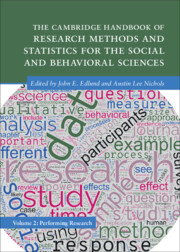 The Cambridge Handbook of Research Methods and Statistics for the Social and Behavioral Sciences
The Cambridge Handbook of Research Methods and Statistics for the Social and Behavioral Sciences from Part I - Quantitative Data Collection Sources
Published online by Cambridge University Press: 12 December 2024
Building a successful research career often requires being adept at the methods and tools of the time. For social and behavioral scientists today, that means navigating online participant platforms and the tools used to create online studies. In this chapter, we describe how Amazon’s Mechanical Turk (MTurk) can be leveraged as a source for participant recruitment. We provide a brief history of MTurk’s usage by researchers, describe the challenges researchers have faced with the site, and summarize the status of issues like data quality, sample representativeness, and ethics in online research. Along the way, we provide tips for how researchers can use MTurk to collect high-quality data and to start and advance a research career.
To save this book to your Kindle, first ensure [email protected] is added to your Approved Personal Document E-mail List under your Personal Document Settings on the Manage Your Content and Devices page of your Amazon account. Then enter the ‘name’ part of your Kindle email address below. Find out more about saving to your Kindle.
Note you can select to save to either the @free.kindle.com or @kindle.com variations. ‘@free.kindle.com’ emails are free but can only be saved to your device when it is connected to wi-fi. ‘@kindle.com’ emails can be delivered even when you are not connected to wi-fi, but note that service fees apply.
Find out more about the Kindle Personal Document Service.
To save content items to your account, please confirm that you agree to abide by our usage policies. If this is the first time you use this feature, you will be asked to authorise Cambridge Core to connect with your account. Find out more about saving content to Dropbox.
To save content items to your account, please confirm that you agree to abide by our usage policies. If this is the first time you use this feature, you will be asked to authorise Cambridge Core to connect with your account. Find out more about saving content to Google Drive.